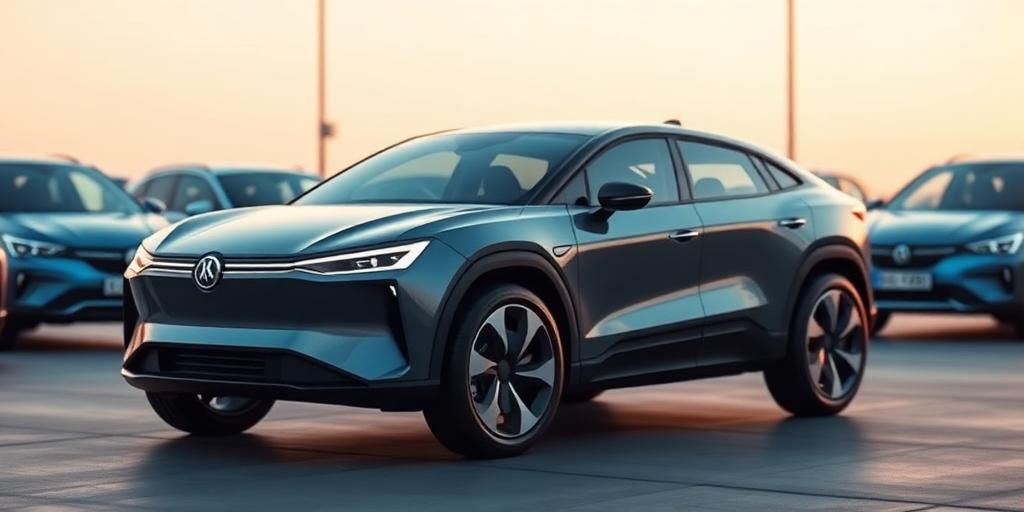How Indian Automakers Are Adapting to Global Trends
India's automotive industry is undergoing a significant transformation as it adapts to global trends. Factors such as increasing environmental concerns, technological advancements, and evolving consumer preferences are compelling Indian automakers to innovate and realign their strategies. This article delves into the ways Indian automakers are responding to these global dynamics.
Embracing Electric Vehicles (EVs)
One of the most prominent adaptations is the push towards electric vehicles. Globally, there's a growing emphasis on reducing carbon emissions and promoting sustainable transportation. Indian automakers are investing heavily in developing and manufacturing EVs to cater to this demand. Government initiatives, such as subsidies and tax benefits for EV buyers and manufacturers, are further accelerating this transition.
- Tata Motors: Tata Motors has been at the forefront of the EV revolution in India, with models like the Nexon EV and Tigor EV gaining popularity.
- Mahindra & Mahindra: Mahindra is also investing significantly in electric mobility, with plans to launch multiple EV models across different segments.
- Hero Electric and Ather Energy: These companies focus exclusively on electric two-wheelers, contributing to the growth of the EV ecosystem.
Enhancing Safety Standards
Global safety standards are becoming increasingly stringent, and Indian automakers are working to meet these benchmarks. The Bharat New Car Assessment Programme (BNCAP) is expected to play a crucial role in enhancing vehicle safety standards in India by conducting crash tests and assigning safety ratings to vehicles.
- Adoption of Advanced Safety Features: Automakers are incorporating advanced safety features like Anti-lock Braking Systems (ABS), Electronic Stability Control (ESC), and airbags as standard offerings in their vehicles.
- Compliance with International Regulations: Indian manufacturers are aligning their vehicle designs and manufacturing processes with international safety regulations to compete effectively in the global market.
Integrating Advanced Technology
Technology is reshaping the automotive industry, and Indian automakers are integrating advanced technologies to enhance vehicle performance, safety, and user experience. This includes:
- Connectivity Features: Automakers are offering connected car features such as telematics, infotainment systems, and smartphone integration to cater to tech-savvy consumers.
- Autonomous Driving Technologies: While fully autonomous vehicles are still some time away, Indian automakers are exploring and incorporating advanced driver-assistance systems (ADAS) like adaptive cruise control, lane departure warning, and automatic emergency braking.
- AI and Data Analytics: Companies are leveraging AI and data analytics to optimize vehicle performance, personalize the driving experience, and improve customer service.
Focusing on Sustainable Manufacturing
Sustainability is not just about electric vehicles; it also encompasses the entire manufacturing process. Indian automakers are adopting sustainable manufacturing practices to reduce their environmental footprint.
- Energy Efficiency: Companies are investing in energy-efficient technologies and processes to reduce energy consumption in their manufacturing plants.
- Waste Management: Automakers are implementing waste reduction and recycling programs to minimize waste generation and promote circular economy principles.
- Water Conservation: Water is a precious resource, and automakers are adopting water-efficient technologies and practices to conserve water in their operations.
Adapting to Changing Consumer Preferences
Consumer preferences are evolving, with buyers seeking vehicles that offer a combination of style, performance, safety, and technology. Indian automakers are conducting extensive market research to understand these changing preferences and develop products that meet the needs of their target customers.
- Design and Styling: Automakers are collaborating with global design firms to create vehicles that are visually appealing and aligned with the latest design trends.
- Customization Options: Offering customization options allows buyers to personalize their vehicles and express their individuality.
- Value Proposition: Indian automakers are focusing on delivering value for money by offering vehicles that provide a compelling combination of features, performance, and price.
Conclusion
Indian automakers are proactively adapting to global trends by embracing electric vehicles, enhancing safety standards, integrating advanced technology, focusing on sustainable manufacturing, and adapting to changing consumer preferences. These efforts will not only help them compete effectively in the global market but also contribute to a more sustainable and technologically advanced automotive industry.









